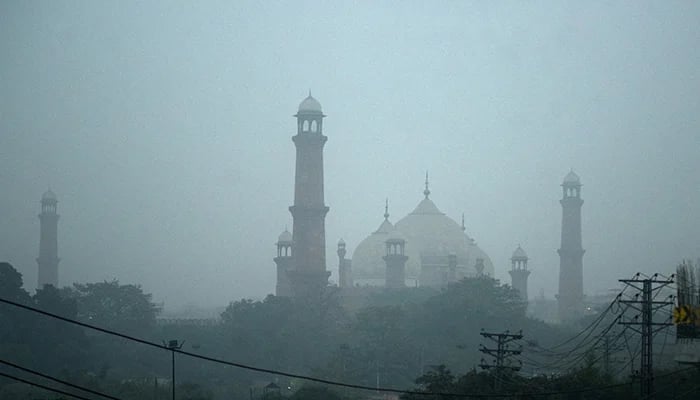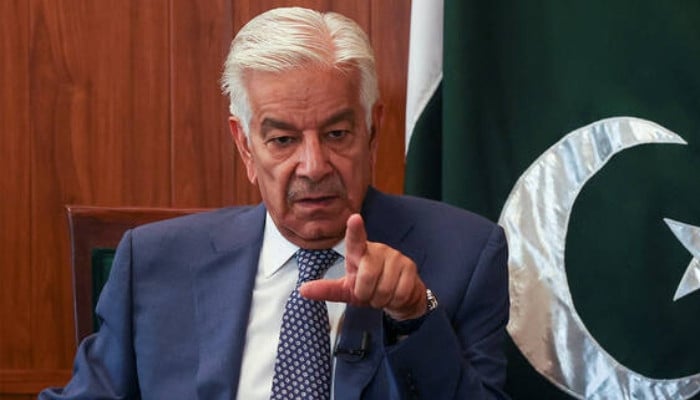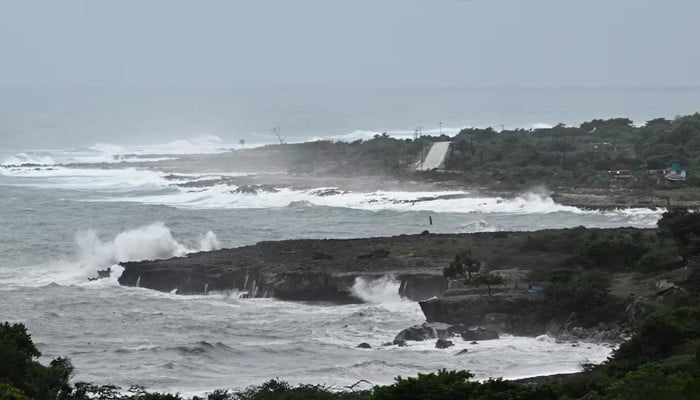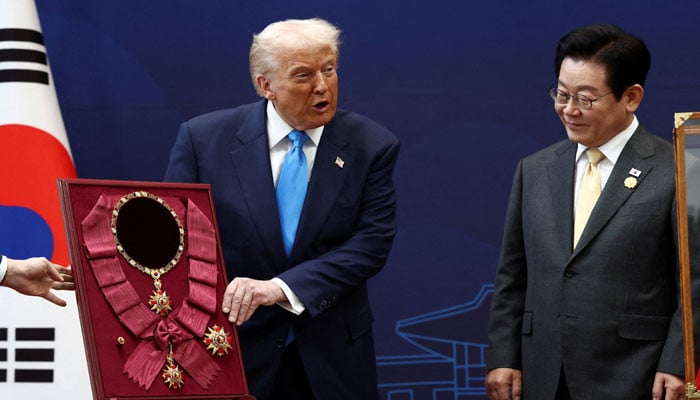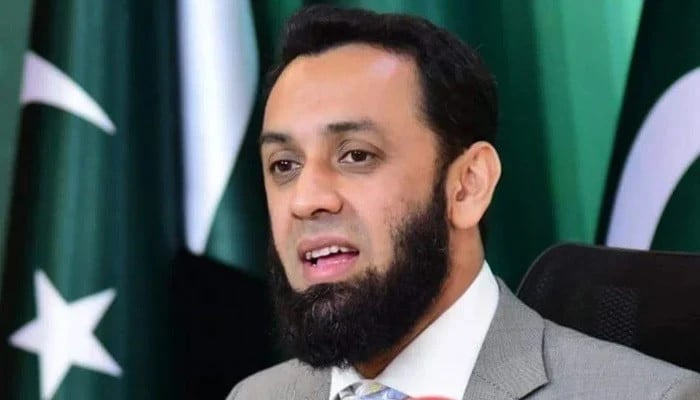
Federal Information Minister Attaullah Tarar speaks during a press conference. — Facebook@TararAttaullah/File
#Istanbul #talks #collapse #Afghan #Taliban #refuse #yield #Tarar
Information and Broadcasting Minister Attaullah Tarar confirmed early Wednesday that the latest round of talks between Pakistan and the Afghan Taliban in the Turkish capital Istanbul had ended without any progress.
“The dialogue thus failed to produce any workable solution,” Tarar said in an X-post after the four-day meeting ended.
He said that Pakistan has long sought cooperation from Kabul against militants targeting the country.
“Since the assumption of control in Kabul, Pakistan has repeatedly engaged with the Afghan Taliban government about cross-border terrorism carried out by the Indian-backed Fitnah-ul-Khurji (TTP) and the Indian proxy, Fitnah-ul-Hindistan (BLA).”
Tarar added that Islamabad had asked the Taliban government to “repeatedly fulfill its written commitments to Pakistan and the international community in the Doha Agreement.”
However, he said, “Pakistan’s earnest efforts have proved futile due to the Afghan Taliban government’s unrelenting support for anti-Pakistani terrorists.”
“The Taliban government has no responsibility for the people of Afghanistan and thrives on a war economy,” he said, adding that it “desires to drag the Afghan people into an unnecessary war and fuel it.”
“Pakistan has always sacrificed, advocated and sacrificed immensely for peace and prosperity for the people of Afghanistan,” Tarar said.
“In the same spirit, Pakistan has held countless rounds of talks and parleys with the Afghan Taliban government, but unfortunately, they have always been indifferent to Pakistan’s losses.
“Sadly, after sustaining such heavy losses of men and women for four years, Pakistan’s patience has run its course.”
He said Pakistan joined Doha and later Istanbul to “give peace a chance”, following the request of “the brotherly countries of Qatar and Turkey”.
The minister said that Pakistan presented “substantial and irrefutable evidence” of terrorist activities, which were “acknowledged by the Afghan Taliban and the hosts,” but “unfortunately, the Afghan side did not provide any assurances.”
“The Afghan side continued to deviate from the core issue, avoiding the main point on which the dialogue process was initiated. Instead of accepting any responsibility, the Afghan Taliban resorted to the blame game, diversion and malfeasance,” Tarar said.
He “thanked Qatar, Turkey and other friendly countries for their support and sincere efforts to bring about a peaceful solution to the problem of terrorism.”
Tarar affirmed that Pakistan’s security comes first. “The security of its people is of great importance to Pakistan,” he said.
“We will continue to take all possible measures necessary to protect our people from the menace of terrorism and assure them that the Government of Pakistan will continue to employ all resources necessary in this regard to eliminate terrorists, their sanctuaries, their supporters and supporters.”
Anti-Taliban
Sources said the Pakistani delegation and Turkey are making last-ditch efforts to resolve the issue of cross-border terrorism through talks with the interim Taliban rulers in Istanbul.
During the week-long talks, the Afghan delegation repeatedly shifted its position under Kabul’s instructions, slowing progress.
On Monday, Pakistan and Afghanistan held 18 hours of talks, pushing the talks into the final day.
Pakistan has articulated clear, evidence-based counter-terrorism demands, but the Taliban’s stubborn refusal to cooperate and acknowledge ground realities has stalled meaningful progress, security sources said.
He said that the Afghan Taliban delegation accepted Pakistan’s demand for action against militants and terrorists who operate from their territory. Still, they (Taliban) continued to change their position on instructions from Kabul, the sources added.
According to Reuters, the two agreed to a ceasefire in Doha on October 19, but a second round of mediation by Turkey and Qatar in Istanbul failed to find common ground, Afghan and Pakistani sources briefed on the matter said.
A Pakistani security source said the Taliban were unwilling to rein in the TTP, which operates with impunity inside Afghanistan.
The sources added that the third day of Istanbul talks on Monday was marred by disagreements, with Pakistan pushing for its proposals while the Afghan delegation remained constrained by Kabul’s directives.
Mediators also accepted Pakistan’s demands as reasonable and legitimate, the sources said, adding that the Afghan negotiators themselves interestingly thought it was right to accept Islamabad’s counter-terrorism demands.
Security sources said the Afghan Taliban continued to take instructions from Kabul and repeatedly consulted the Afghan administration during the talks.
“The delegation seems to be under the sway of Kabul, and that creates delays,” he added.
According to sources, Pakistan has consistently emphasized that it is in everyone’s interest to accept its demands, a point also conveyed to the Taliban by host countries.
Islamabad-Kabul tension
Against the backdrop of increasing terror attacks in Pakistan, the two neighboring countries are witnessing heightened tensions amid the Afghan Taliban government’s reluctance to act against terrorist groups operating from its soil.
The tension escalated when Taliban forces and the India-backed Tehreek-e-Talaban Pakistan (TTP), alias Fitnah al-Kharj, resorted to an unprovoked attack on Pakistan on October 12.
Pakistan’s armed forces gave a befitting response to the aggression, killing more than 200 Afghan Taliban and allied militants in self-defense.
The army’s media wing, Inter-Services Public Relations (ISPR), said 23 soldiers accepted martyrdom in clashes with Taliban forces and terrorists.
Additionally, security forces also carried out “security strikes” in Afghanistan’s Kandahar province and the capital Kabul, as well as in the border areas of North and South Waziristan districts, successfully destroying several strongholds in response to the offensive.
The two sides had agreed to a temporary ceasefire during the Doha talks on October 19 and held further meetings to establish permanent mechanisms to ensure peace and stability.
With additional input from the R writers
